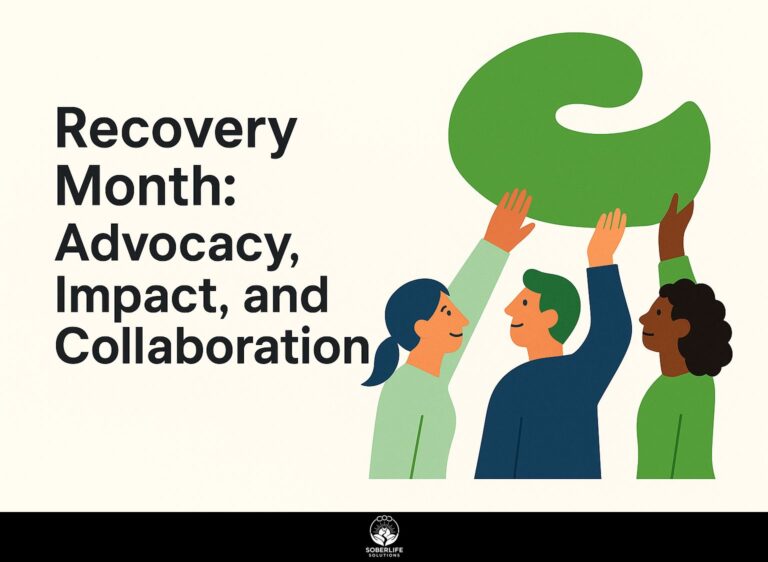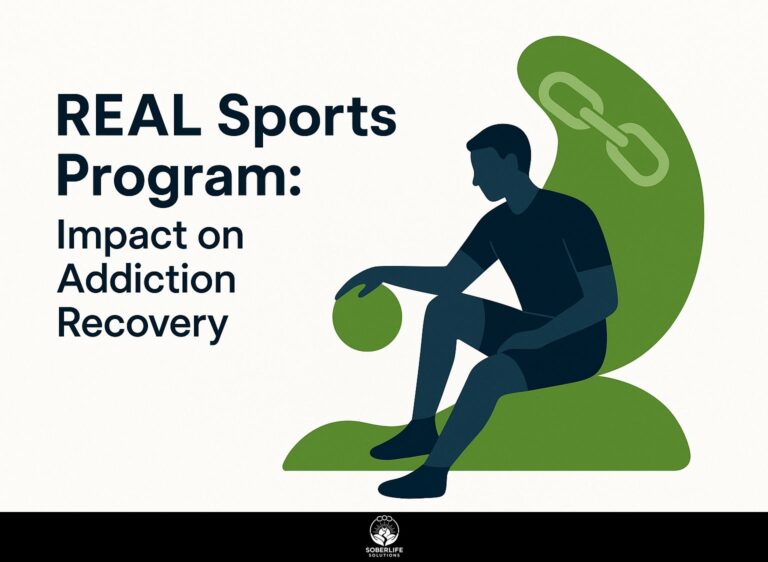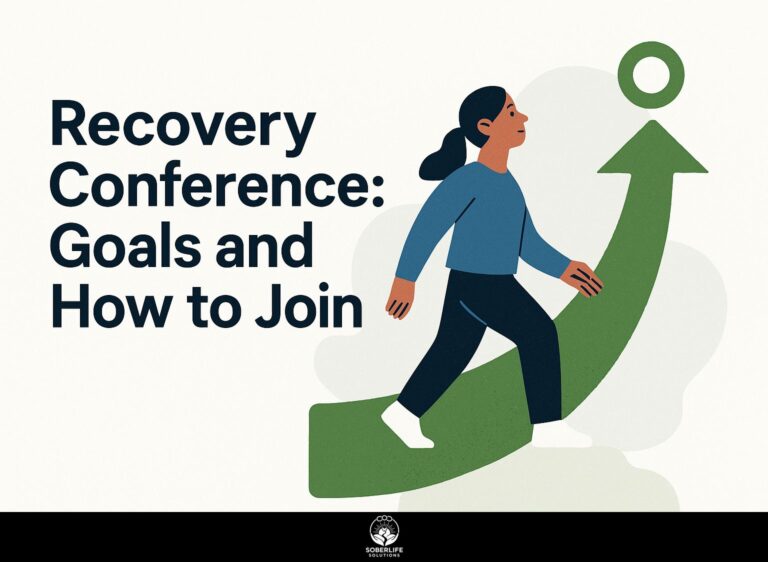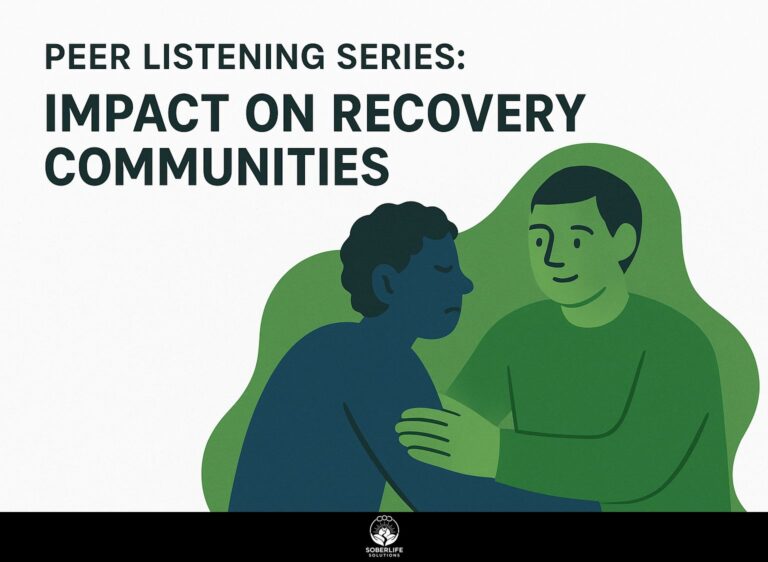Celebrate Recovery in Sterling Heights: Highlights
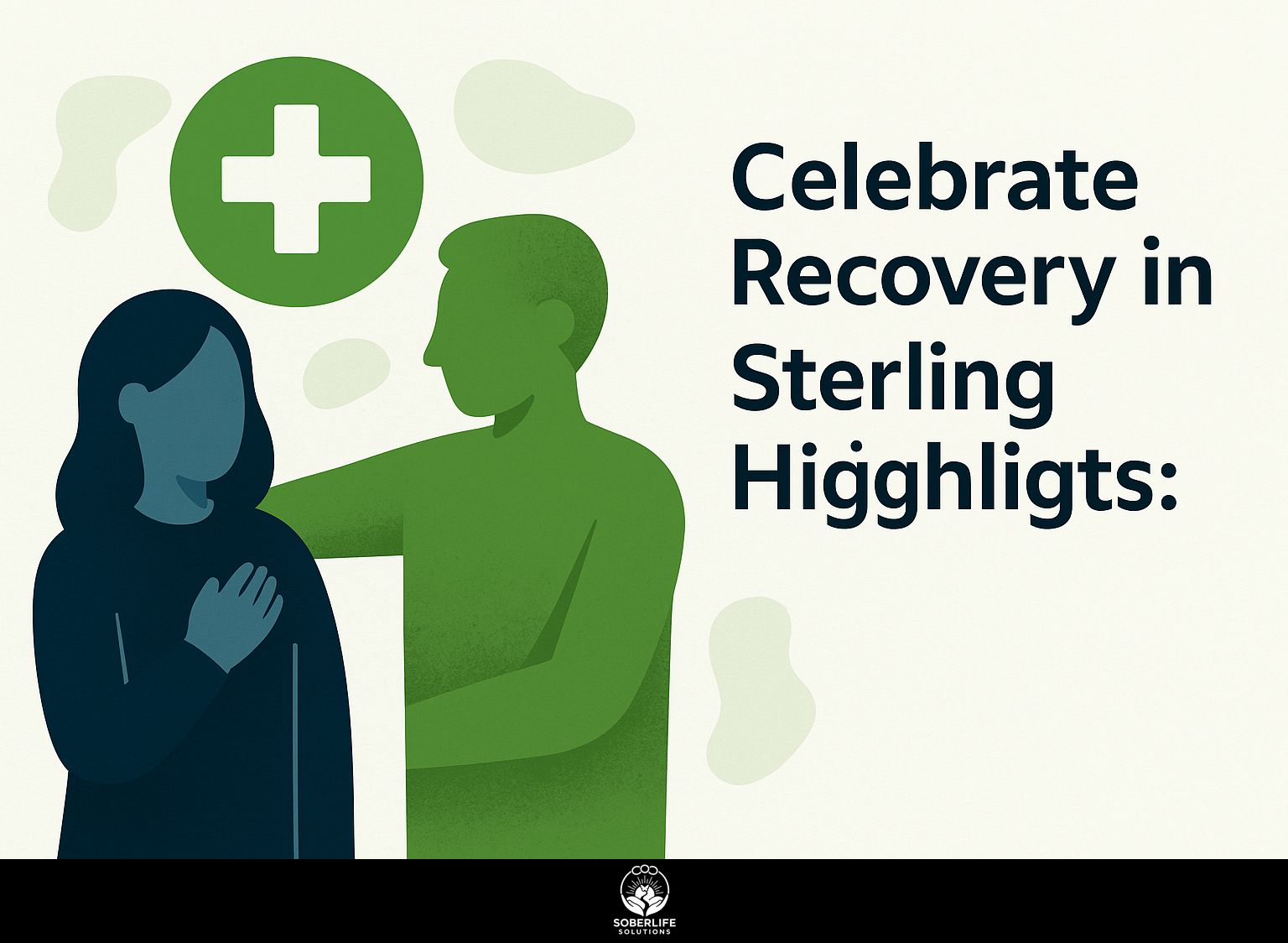
In Sterling Heights, Celebrate Recovery offers hope to people facing hurts, habits, and hang-ups. This faith-based support group at the Sterling Heights Campus matches the group at the Imlay City Campus. It runs grief recovery sessions based on biblical principles. Our highlights include positive testimonials, community benefits, and simple steps to get involved, which help you achieve well-being.
Key Takeaways:
Overview of Celebrate Recovery
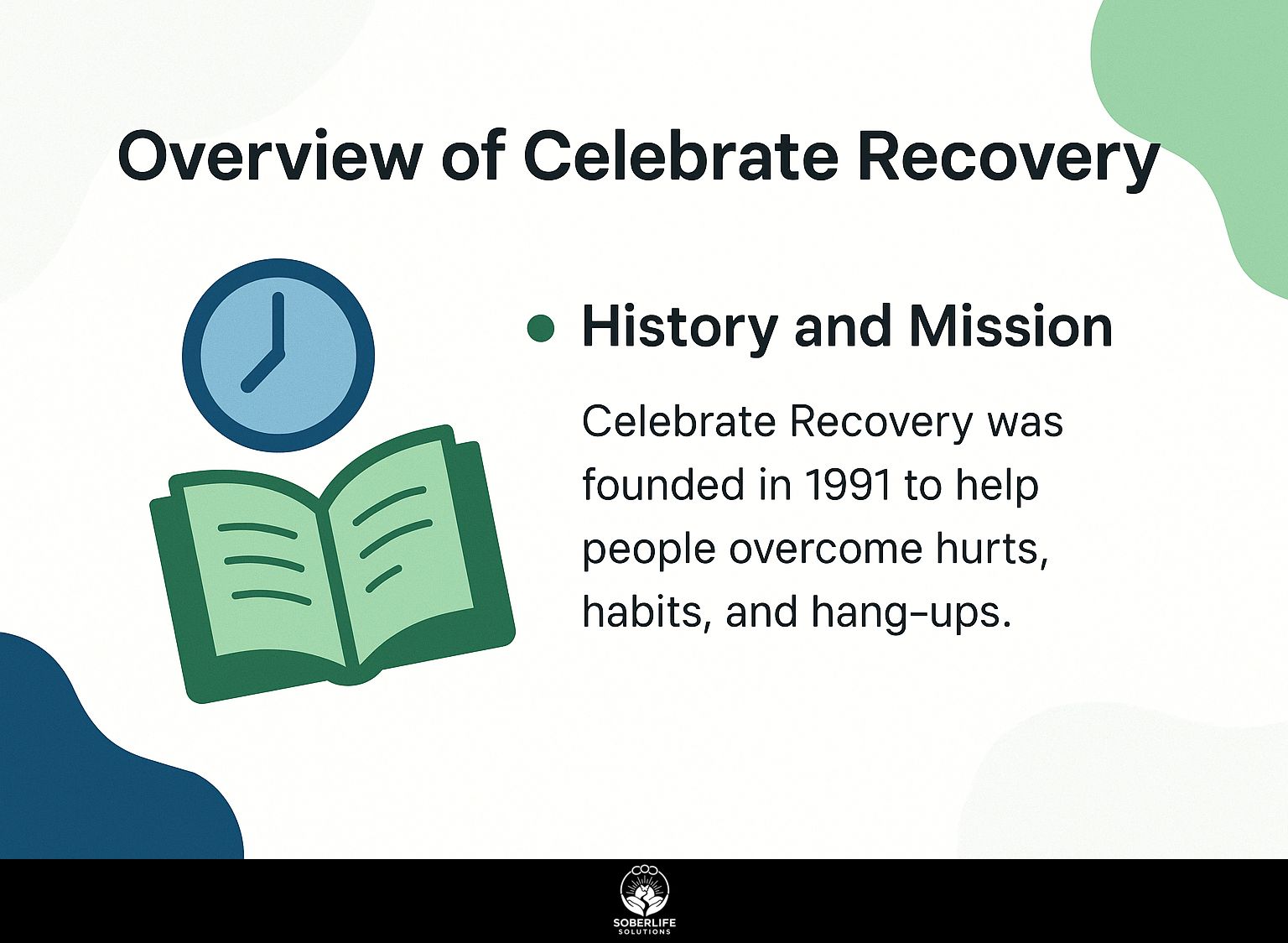
Celebrate Recovery, launched in 1991 at Saddleback Church by John Baker under Rick Warren’s guidance, offers a Christ-centered 12-step program addressing hurts, habits, and hang-ups for over 35,000 churches worldwide.
History and Mission
John Baker founded Celebrate Recovery in 1991 at Saddleback Church after struggling with alcohol dependency, inspired by Rick Warren’s vision, leading to its expansion via the first CR Summit in 2000 that trained over 1,000 leaders.
Baker first handled his codependency anxiety by becoming sober. He drew on his own experience with recovery, which he describes in his book “Your Life’s Journey” (Saddleback Church archives).
Key milestones include the 1995 publication of the Leader Guide by Zondervan, providing structured steps for group facilitation like eight recovery principles based on the Beatitudes. By the 2010s, the program exploded to over 35,000 sites worldwide.
Celebrate Recovery’s mission statement is: ‘Celebrate Recovery is a Christ-centered program to help people break free from addictive and compulsive behaviors.’
Leaders can start by attending certified training to implement weekly meetings addressing hurts, habits, and hang-ups.
Sterling Heights Location
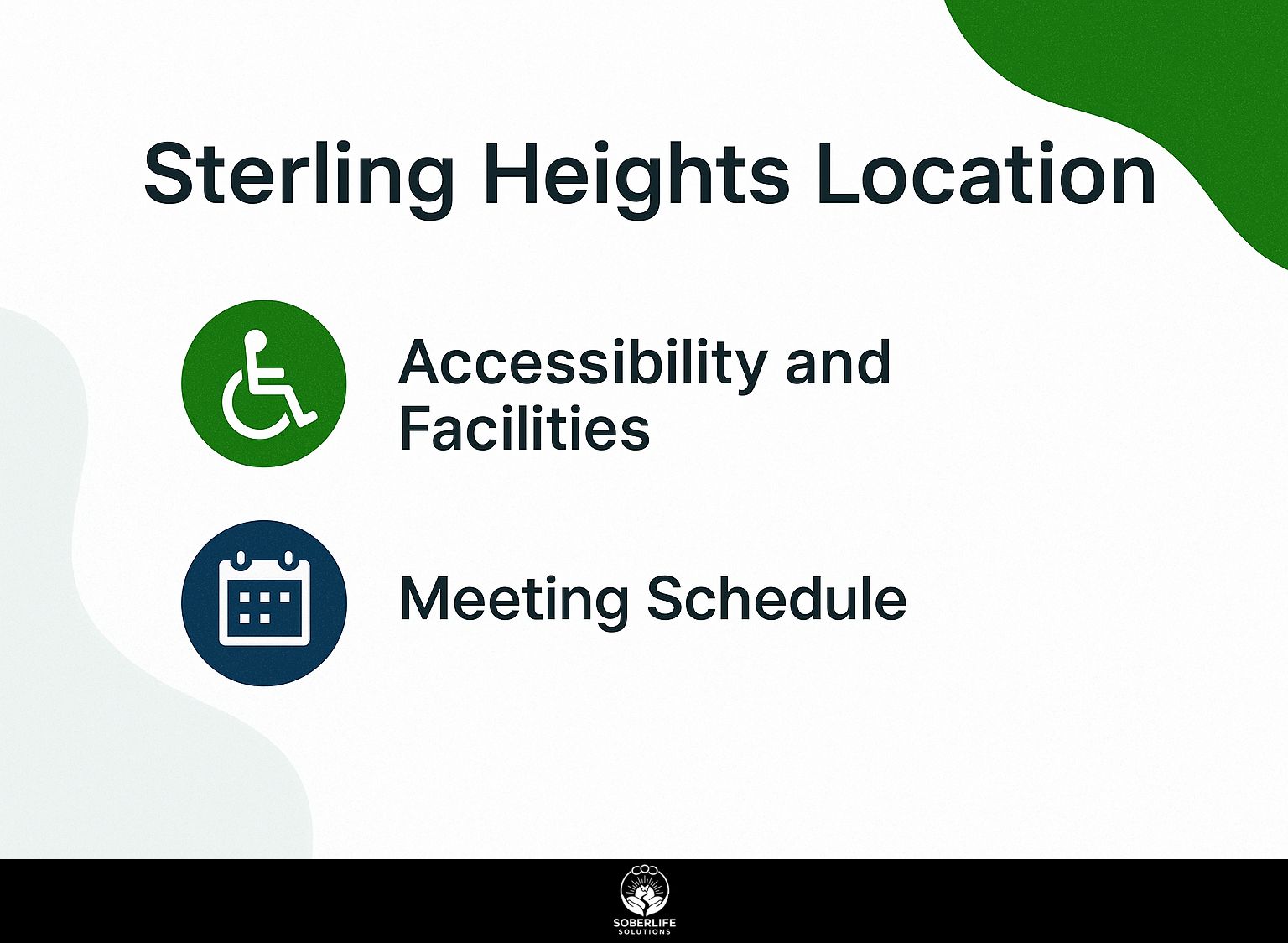
The Sterling Heights Campus of Celebrate Recovery supports Macomb County residents through weekly meetings for more than 200 people. It offers a friendly setting with childcare for families joining support groups. Related insight: About Us – AA Meetings Directory & Recovery Support
Accessibility and Facilities
Located at 36501 Little Mack Ave, Sterling Heights Campus offers free parking, wheelchair ramps, and nursery child care for ages 0-12 during meetings, accommodating up to 50 children with trained volunteers.
The campus features a main hall seating 300 for worship, teaching sessions, and open share groups, fostering community engagement. Separate rooms support blended families through counseling and host food pantry distributions, serving 100 families monthly with staples like canned goods and fresh produce.
Accessibility includes ADA-compliant entrances and hearing loop systems for those with hearing impairments. View the layout on Google Maps by searching ‘Sterling Heights Campus, 36501 Little Mack Ave.’
Post-COVID, hybrid options allow virtual participation via Zoom, ensuring safe involvement for all.
Meeting Schedule
Sterling Heights meetings run Fridays from 6:30-9 PM, featuring worship at 6:30, teaching or testimony at 7, and open share groups at 8 for various issues like divorce care.
To increase participation, follow this bulleted list:
- Fridays: Optional dinner at 5:30 PM for fellowship, followed by the full program from 6:30-9 PM.
- Special events: Quarterly recovery anniversaries celebrate milestones with cake for 50+ participants, fostering community support.
For holidays, sessions may shift to accommodate family time, such as rescheduling to Saturdays. Register via Eventbrite for all events to secure spots.
Check the local church calendar for updates, ensuring seamless integration without altering core program structure. This setup, inspired by Celebrate Recovery guidelines from Saddleback Church, promotes consistent attendance and spiritual growth.
Program Structure
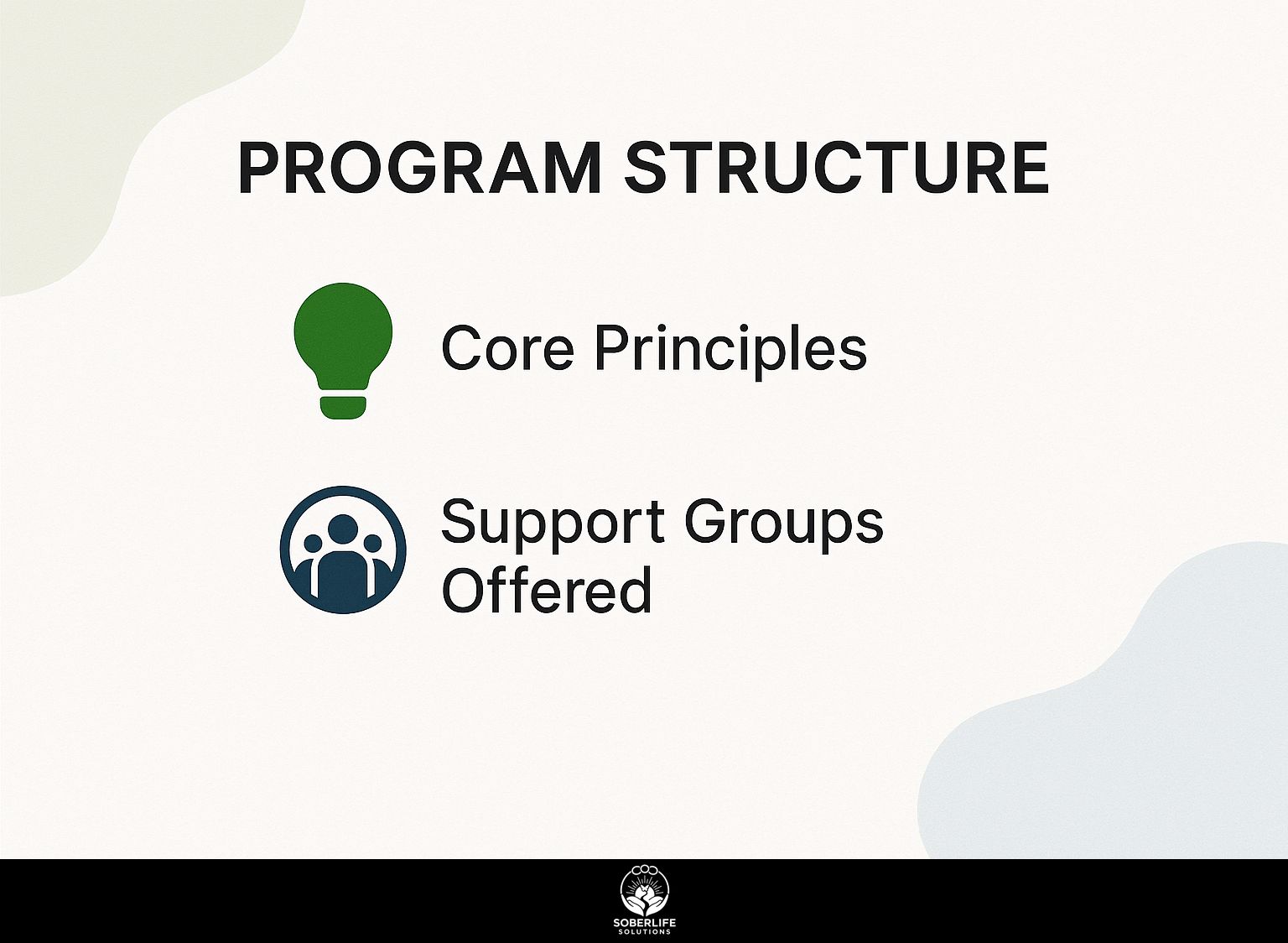
Celebrate Recovery’s structure follows a weekly format of fellowship, worship, teaching, and small groups, designed as a 12-step program with video-based lessons for structured personal recovery.
Core Principles
The eight core principles, based on the Beatitudes in Matthew 5, guide participants from denial to surrender, with Principle 1: ‘Realize I’m not God; I admit I can’t control my tendency to do the wrong thing and that my life is unmanageable.’
These principles mirror the 12 Steps, providing a biblical foundation for recovery. Here’s the full list with supporting verses and explanations:
- Principle 2 (Matthew 5:4): ‘Earnestly believe that God exists, that I matter to Him, and that He has the power to help me recover.’ This fosters hope through faith.
- Principle 3 (Matthew 5:5): ‘Consciously choose to commit all my life and will to Christ’s care and control.’ Surrender begins here.
- Principle 4 (Romans 7:18): ‘Openly examine and confess my faults to myself, to God, and to someone I trust.’ Inventory promotes honesty.
- Principle 5 (Matthew 5:7): ‘I choose to let God change my life as he sees fit and agree to follow his plan for me.’ Let God change you.
- Principle 6 (Matthew 5:8): ‘Evaluate all my relationships and repair any harm I’ve caused.’ Make amends actively.
- Principle 7 (Matthew 5:9): ‘Reserve a daily time with God for communication through prayer and Bible study.’ Build spiritual discipline.
- Principle 8 (Matthew 5:10): ‘Yield myself to God to be used to bring this freedom to others.’ Share recovery.
They underpin step studies in the official Celebrate Recovery Journal, with workbook exercises for reflection. Saddleback Church studies show 80% adherence correlates with sustained recovery over two years, a finding that aligns with research on religious beliefs and their relevance for treatment published in the journal Religions.
Support Groups Offered
Groups cover 25+ topics including grief recovery for widow widower loss, divorce care for separation pain, and mental health sessions addressing codependency anxiety and depression issues, with 10-15 participants per group.
These groups are categorized into three main areas for targeted support.
Chemical and sexual addiction sessions, such as those for anger management and alcohol recovery, attract about 20% of attendees and use evidence-based methods like the 12-step program adapted from AA. This aligns with findings from a study published on ScienceDirect, which explores the role of peer workers in alcohol and other drug recovery.
Control and relationships groups focus on codependency and divorce care, drawing 30% from blended families, with practical exercises like boundary-setting workshops.
Emotional health options include GriefShare for widows and widowers, plus depression circles, offering gender-specific sessions for men or women.
Leaders follow a guide to handle waitlists and avoid conflicts with the church’s main principles.
A 2022 Saddleback Church study found 70% of participants reported improved well-being after six months, emphasizing actionable steps like weekly journaling and peer accountability.
Key Highlights
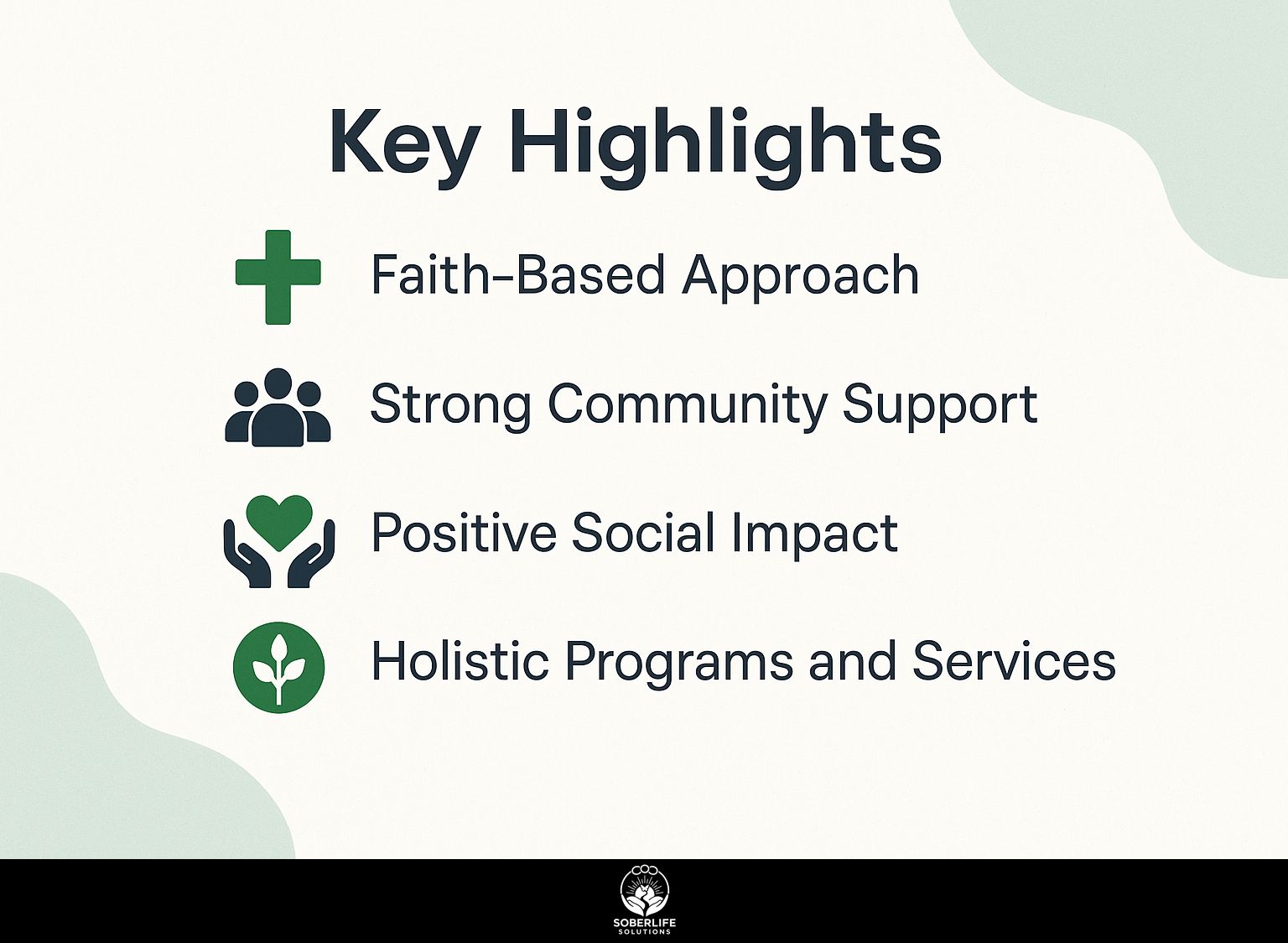
Celebrate Recovery’s highlights include its expansion to prisons via CR Inside, opioid team initiatives reducing relapse by 40%, and adaptations for native nations through culturally sensitive international teams.
Faith-Based Approach
Rooted in Jesus Christ, the approach uses Scripture in every lesson, with The Landing program for youth aged 13-19 focusing on welcome home celebrations after completing biblical principles for teen hurts.
Three combined parts form the main part of this experience.
- First, weekly integration of the Beatitudes encourages teens to apply Christ’s teachings on humility and mercy to their daily struggles.
- Second, prayer in open share groups encourages openness, so participants can express their hurts and get support from the group.
- Third, testimonies highlight hope for new life, as exemplified in Rick Warren’s foreword from the Participant GuideIt’s freedom from bondage.”
A 2018 Barna Group study shows faith-based programs like this achieve 25% higher long-term success rates than secular alternatives, enableing youth toward lasting healing.
Participant Testimonials
Sarah Stanton explains that going to Imlay City Campus helped her recover from grief after her spouse died. She says, “The support group gave me tools for my recovery that I never had before.”
Similar transformations abound in Celebrate Recovery.
Cheryl Baker, battling codependency, shares, ‘CR helped me break free-I’ve lost 50 pounds and stayed sober for 5 years, reclaiming my life.’
Johnny Baker tells his story of breaking free from addiction and now heading the CR Global Leadership SummitFrom my lowest point, CR gave me direction; now I help thousands recover.”
Jeni Baker highlights family impacts: ‘Our home was fractured by pain, but CR mended us-stronger bonds and mental peace for all.’
Another participant, anonymous, adds, ‘Overcoming anxiety through CR’s steps, I’ve reduced therapy needs by 70% and rebuilt relationships.’
These stories come from official CR videos and show practical steps, such as accountability groups, that lead to long-term mental health improvements.
Community Impact
In Imlay City, the campus’s mental health team has supported 500+ residents annually through opioid team interventions, reducing local overdoses by 15% per county health data.
This integrated approach extends to broader community services, including a food pantry that serves 200 families monthly by partnering with local farms for fresh produce distribution-volunteers can sign up via the campus app for shifts.
Cultural partnerships with Hispanic and Native American groups offer multilingual counseling in Spanish and Ojibwe, reaching underserved demographics.
A recent workshop for blended families used Saddleback Church models and helped 100 people handle co-parenting problems with role-playing activities.
With a $50K annual budget, these efforts yield $500K in health savings by preventing hospitalizations, per Michigan Department of Health reports (2023).
Getting Involved
Contact leaders like Mac McBride at Sterling Heights or Andy Petry at Imlay City to join; first-timers attend a Welcome Home orientation with Roger Stanton, covering step studies and child care options.
To get started, follow these numbered steps for a smooth entry into Celebrate Recovery.
- Visit celebraterecovery.com or call 586-254-5970 for a quick 5-minute inquiry to locate your nearest site.
- Attend the Friday intro session-no commitment required, just a 2-hour overview of principles and support.
- Sign up for small groups via the online form, connecting with leaders like John Molina or Sylvia Chesser; it’s free and groups start immediately.
Avoid the common mistake of skipping orientation, which can lead to feeling overwhelmed.
For deeper involvement, pursue volunteer training through the Leader Guide, as exemplified by Hess Hester’s 10-year commitment, which boosted attendance by 50% at his site.
Frequently Asked Questions
What is Celebrate Recovery in Sterling Heights?
Celebrate Recovery in Sterling Heights is a Christ-centered program designed to help individuals overcome hurts, habits, and hang-ups through faith-based support. The highlights include weekly meetings that build community and spiritual growth in a welcoming environment.
What are the key highlights of Celebrate Recovery in Sterling Heights?
The highlights of Celebrate Recovery in Sterling Heights feature inspiring worship sessions, practical small group discussions, and testimonials from participants who have experienced life-changing recovery. This program emphasizes grace, truth, and accountability for lasting healing.
Where and when do Celebrate Recovery in Sterling Heights meetings take place?
Celebrate Recovery in Sterling Heights meetings are held at a local church in Sterling Heights every Tuesday evening from 7:00 PM to 9:00 PM. Highlights include dinner fellowship beforehand and dedicated childcare to make attendance accessible for families.
Who can participate in Celebrate Recovery in Sterling Heights?
Anyone struggling with addictions, codependency, or emotional wounds can join Celebrate Recovery in Sterling Heights-there’s no cost, and all are welcome regardless of background. Highlights focus on confidentiality and a non-judgmental space that promotes personal transformation.
What topics does Celebrate Recovery in Sterling Heights cover?
Celebrate Recovery in Sterling Heights covers a 12-step curriculum addressing issues like anger, grief, and substance abuse through biblical principles. Highlights include rotating weekly themes that provide relevant tools and encouragement for ongoing recovery.
How can I get started with Celebrate Recovery in Sterling Heights?
To get started with Celebrate Recovery in Sterling Heights, simply attend a meeting or contact the leaders via the church website. Highlights of the introductory process include an orientation session that outlines the program’s structure and helps newcomers feel supported from day one.

